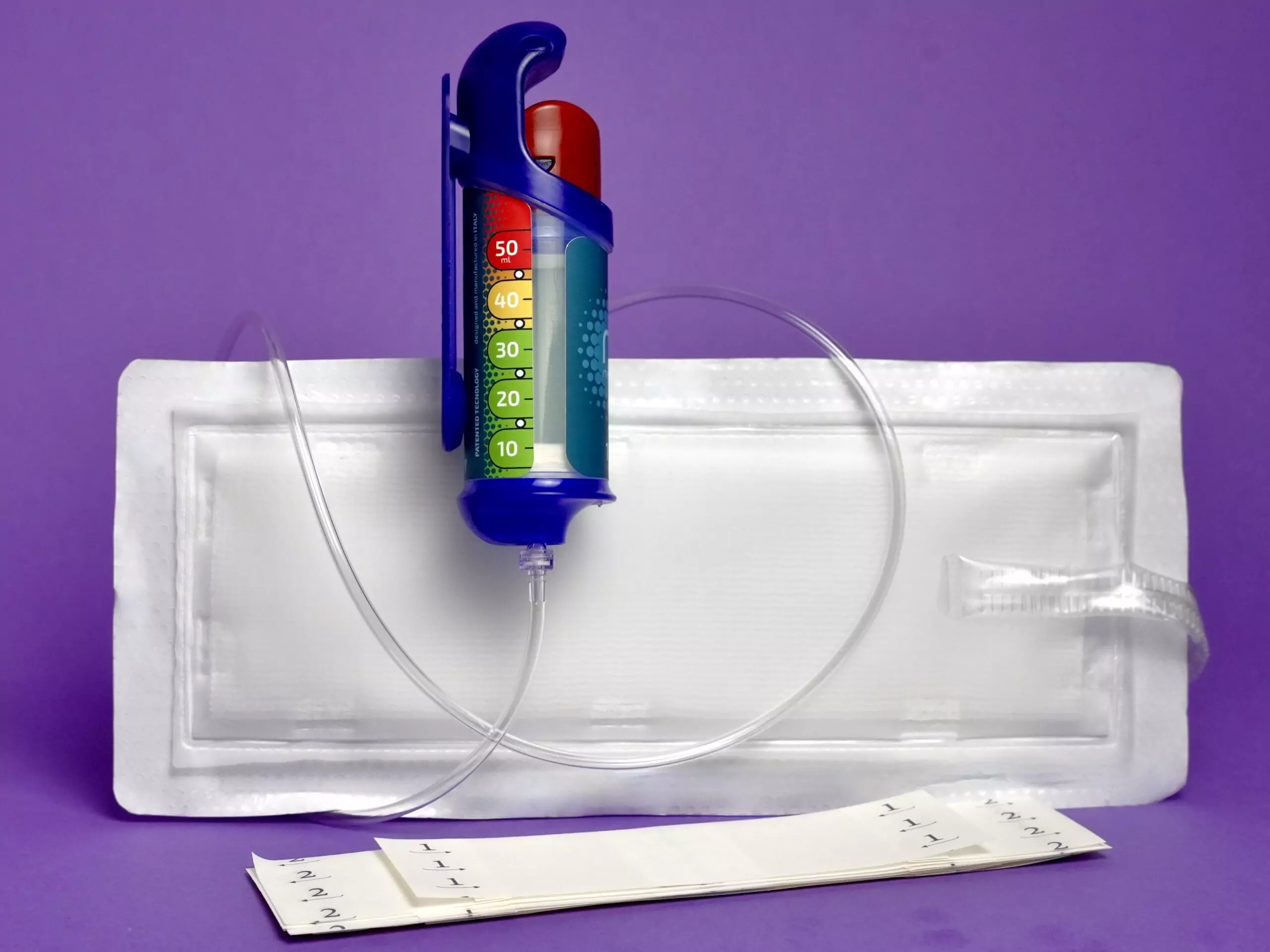Medicud, a startup that develops medical devices specialising in the treatment of wounds, announces that it has raised more than EUR 1.3 million (USD 1.4 million) in seed funding, consisting of EUR 766,000 in venture capital and EUR 575,000 in non-dilutive financing, bringing the total raised since the company’s founding to EUR 2.5 million. New participants in this funding round include CHMBR Partners, a US investment company, 50 Partners Capital Health and Business Angels des Grandes Écoles (BADGE), as well as individual strategic investors.
With this round, Medicud starts the regulatory process for the initiation of a pivotal study on the use of Dryum (pictured), the first mechanical device for negative wound pressure treatment, designed specifically for surgical incisions performed in any branch of specialist medicine. The study, focused on orthopaedic surgery, specifically total hip and knee arthroplasty, is expected to recruit 59 patients at the Pietro and Michele Ferrero Hospital in Verduno, with Marco Schiraldi as principal investigator.
Antonio Nunzio D’Angelo, CEO and co-founder of Medicud, says in a note: ‘I am proud of the results achieved. Our team worked very hard to develop Dryum and achieve a fully functional device in the shortest possible time. For the treatment of wounds, doctors need a new standard of care that is economical and efficient in reducing surgical complications, but also more sustainable. The support and recognition we have received from this group of international investors will help us speed up clinical development. It will be a further step in our journey to make an innovative solution for the postoperative treatment of wounds available to doctors and patients around the world. Series A funding, expected in the first half of 2026, will be crucial for the commercialisation of the device.”
Dryum is a disposable device that exerts constant negative pressure proven to reduce complications and improve healing of surgical wounds. Compared to current negative pressure-based systems, which are heavy, expensive and limiting, Medicud’s device is portable and easy to use, even with one hand, and does not require time-consuming and complicated training. Being manual rather than electronic, Dryum is a more accessible, quieter, and therefore more comfortable option for patients, and most importantly, more cost-effective for surgeons and hospitals worldwide. Thanks to the availability of dressings in various shapes and sizes, it is suitable for different types of wounds.
Charles Hirschler, Managing Director of CHMBR Partners, comments: ‘We invest in promising sports and healthcare companies active in three areas: biotechnology, medtech and patient-facing technologies. Medicud fits perfectly into these parameters. We are thrilled to have invested in this company. Its first product demonstrates great expertise and an important added value, due to its simplicity, reliability and cost-effectiveness compared to the competition. It opens the door to a market that was hitherto unattractive due to its excessive costs and minimal benefits compared to simple dressings’.
Initially, Medicud will focus on the four most common incision surgeries in the EU and the US: caesarean section, total hip arthroplasty (THA), total knee arthroplasty (TKA) and post-mastectomy breast reconstruction. Every year, 4.66 million of these types of operations are performed, with a total value of more than €400 million. Dryum may become the standard of care for postoperative wound care: with 236 million surgeries performed each year worldwide, this market has an estimated value of up to €22 billion and complications at the surgical site affect more than one in ten patients, the main ones being infection and dehiscence (sources: PubMed, Wounds International, OECD, Eurostat, National Center for Biotechnology Information).
Sandrine Egron, investment director of 50 Partners Capital Health, says: ‘Medicud addresses a critical but often overlooked problem in surgical care, namely the prevention of postoperative complications through effective wound management. Its innovative approach with a portable negative pressure therapy system combines an efficacy that meets medical standards with an unprecedented level of usability and affordability. We were impressed by their in-depth clinical knowledge, remarkable execution capabilities and great success among surgeons. The 50 Partners Capital Health fund is proud to support Medicud in transforming recovery after surgery across Europe and internationally’.
The funding will also enable Medicud to obtain CE marking and FDA approval. In line with the company’s international ambitions, regulatory approval is expected in the first half of 2026 According to the EU Medical Device Regulation 2017/745 (MDR), Dryum falls under Class IIa, while for the FDA it is a Class II device and can therefore follow the 501(k) procedure for pre-market application. Medicud plans to expand its team by hiring a figure for commercial management.
ALL RIGHTS RESERVED ©
